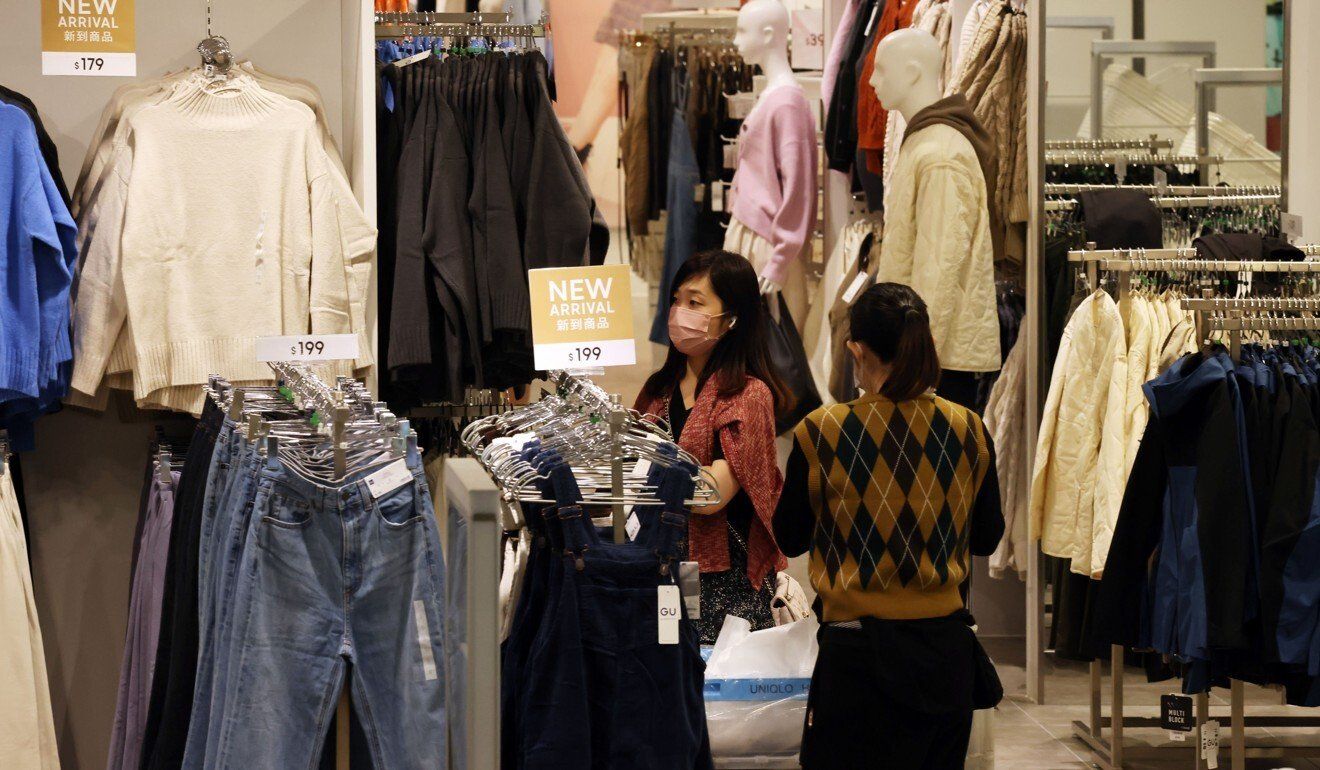Hong Kong News

Hong Kong economy grows 5.4 per cent, keeping recovery on track
Hong Kong’s recent economic recovery gained traction in the third quarter, with 5.4 per cent growth over the same period last year, but rising inflation posed a threat.
The advance estimate by the Census and Statistics Department on Monday showed gross domestic product (GDP) was on track for further improvement between July and September from the economic havoc caused by the Covid-19 pandemic, on the back of robust export growth and buoyant private consumption related to the government’s e-voucher scheme.
However, the city faced growing pressure from inflation as a result of high overseas energy and commodities prices, and global shipping costs.
In the first nine months of 2021, GDP grew 7 per cent year on year, exceeding the government’s forecast of between 5.5 per cent and 6.5 per cent on a full-year basis.
A government spokesman described third-quarter growth as “more moderate” than the corresponding period last year, which reflected the base effect and the stronger-than-expected economic performance in the first half of 2021.
“However, the pandemic development, especially the threat of the more infectious variants, together with supply bottlenecks in many economies, will continue to post downside risks to the global economic outlook,” he said.
“Moreover, the surge in energy prices and elevated inflation pressures in the United States and Europe have cast uncertainties over the future course of major central banks’ monetary policies.”
The rise in GDP tapered off in the third quarter from the 7.8 per cent jump in the first half of the year. In the second quarter, GDP growth soared to a revised rate of 7.6 per cent year on year and 8 per cent in the first quarter.
 Private consumption rose 7 per cent in the third quarter
Private consumption rose 7 per cent in the third quarter
Private consumption – a key component of GDP – was 7 per cent higher in the third quarter than a year ago, but slightly lower than the 7.2 per cent in the preceding three months.
The government’s consumption expenditure rose 4.1 per cent in the third quarter over last year, accelerating from 3 per cent growth in the second quarter.
Capital Economics assistant economist Sheana Yue said the pace of recovery was likely to remain muted until mainland Chinese tourists returned. With Hong Kong remaining in a near lockdown since February last year, there is virtually no tourism.
Financial Secretary Paul Chan Mo-po warned on his blog on Sunday that the city’s economic recovery was uneven and low-income workers still faced livelihood issues, with average wage increases lagging inflation rises in June.
He said that while the average wage edged up 1.1 per cent in June, it effectively shrank 0.3 per cent after taking into account growth in the composite consumer price index (A), an inflation measure that covers 50 per cent of Hong Kong households with monthly expenditures between HK$6,500 (US$833) and HK$27,999.
Overall inflation rose 1.4 per cent year on year in September, while CPI (A) was up 1.6 per cent.
Hong Kong Imported Vegetable Wholesale Merchants Association chairman Yuen Cheong said the cost of produce had skyrocketed about 30 per cent in recent weeks, and warned food would remain expensive until Lunar New Year next February if unstable weather continued and the pandemic worsened on the mainland.
“Hongkongers will have to brace for more expensive vegetables because the fresh outbreak of Covid-19 across the border prompted the lockdown of certain areas and stifled logistics,” he said.
Hong Kong imported 90 per cent of its vegetables from the mainland, he added.
In recent months, prices have risen for a number of staple foods, including beef, coffee and flour.
In the wet market on Wan Chai’s Lockhart Road, retiree Ms Ng, 68, said her living costs had soared in the past few months but her pension had stayed the same.
“Vegetables are 10 per cent costlier, and the quality doesn’t seem very good,” she said.
“I’ll still buy whatever I need to eat, however pricey. But I’m buying cheaper clothes, and some second-hand ones, at stalls nearby.
“The clothes are so shabby that I just wear them when I don’t have to meet others.”
The price of fuels such as petrol, diesel and liquefied natural gas for taxis and minibuses has risen so much since the beginning of the year that the Hong Kong Land Transport Alliance – an industry body representing 12 transport groups and tens of thousands of drivers – last week appealed to the government for financial aid.











